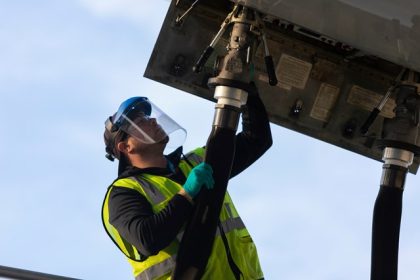Regional manufacturers query conflicting business policies
May 30—Manufacturing and industry leaders across the region have asked the East African Community (EAC) governments to agree on common policies to reduce on the obstacles that stand in the way of doing business.
The theme was ‘Harnessing the Manufacturing Potential for Sustainable Economic Growth in East Africa’.
At the close of the 2nd East African Manufacturing Business Summit held in Kigali last week, a set of resolutions were passed highlighting a sense of frustration among business people. Participants at the Summit officially opened by President Paul Kagame, included senior ministers, technocrats and representatives from the private sector.
According to one of these resolutions, ‘Regional national policies/regulations are pursued as opposed to having single/common policies segmenting and fragmenting the market which limits the scope for economies of scale and escalates the cost of doing business. The region should develop and adopt common sectoral policy and visions to ensure stability and create uniform business environment for manufacturing.’
It was readily agreed that both the public and private sectors are key to driving industrialization in the region. However the capital costs for large scale industrialization projects, should involve partnerships between governments.
‘The region should develop regional policy frameworks for government led industrialization mega projects that can drive up manufacturing in the region. EAC Partner States to commit to a percentage of national budgets allocated for industrial development,’ reads this part of the resolution.
Other aspects that the resolutions touched upon included lack of regional coordination in setting up special economic zones which has distorted competitiveness and greater weight should be thrown behind increasing local content. It was decided that ‘EAC should develop a regional local content policy and strategy for better coordination of local content initiatives. To guide this development, the EAC is to undertake baseline studies on local content in all lead economic sectors to guide review of policies, legal and regulatory frameworks for a regional local content policy development.’
In the run-up to the summit, Lilian Awinja, the CEO of the umbrella East African Business Council (EABC) said.“Improving the value chain of EAC strategic sectors is key for the region to reap benefits of local content requirements.”
Business people said the current EAC Common External Tariff (CET) structure does not work effectively for manufacturing in the region. Participants now want the EAC Secretariat together with the EABC, to detail in a comprehensive, evidence-based, and consolidated way priority for the CET review proposing four to five bands as appropriate’.
The overall aim is to improve processing and encourage backward and forward value addition linkages in the total value chain of the manufacturing sector as EAC Partner States embark on comprehensive review of EAC CET. Comprehensive tariff anomalies assessment should be undertaken targeting sectors such as cotton, textiles, and apparels; motor vehicles, wood & furniture among others, dairy, edible oils, cereals, leather. Further the region is to put in place web portals for the sectors to facilitate information sharing.
Encouraging East Africa’s Diaspora to invest in the region, together with a concerted push to develop vocational training and raise the EAC skills were also listed on the resolutions. It was agreed that EAC member states fast track implementation of mutual recognition agreements between EAC Bureaux of Standards that have prevented free movement of services across borders.


 Commuter bus operator Tondeka Metro loses city commuter business in web of intrigue
Commuter bus operator Tondeka Metro loses city commuter business in web of intrigue
 100+ Accelerator selects Ugandan startup Yo-Waste to pilot glass recycling at Nile Breweries
100+ Accelerator selects Ugandan startup Yo-Waste to pilot glass recycling at Nile Breweries
 Boeing’s record SAF purchase supports airlines decarbonisation efforts
Boeing’s record SAF purchase supports airlines decarbonisation efforts
 Uganda Airlines likely to miss Spirit A320neo delivery slots
Uganda Airlines likely to miss Spirit A320neo delivery slots
 Rolls-Royce Pearl 10X engine takes flight
Rolls-Royce Pearl 10X engine takes flight
 Unpacking results-based financing: balancing strengths with weaknesses
Unpacking results-based financing: balancing strengths with weaknesses
